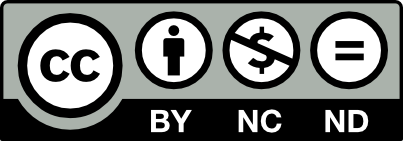¿ Cuáles son los enfoques que explican el juego de los actores en el proceso de las políticas públicas?
Resumen
El presente trabajo expone diversos enfoques de estudio del campo de las políticas públicas. Realizando una descripción de los diferentes marcos, se resumen sus principales aspectos, términos y dificultades del campo, no solo teóricos sino también terminológicos. El enfoque del juego de actores, es una característica persistente en los estudios de políticas públicas.
Descargas
Citas
Anderson, P. A. (1983). National security decision making in the White House and its organization. Word Affairs, (146), 148-175.
Atkinson, M. M. y Powers, R. A. (1987). Inside the industrial policy garbage can: selective subsidies to business in Canada. Canadian Public Policy (13), 208-217.
Aucoin, P. y Bakvis, H. (1988). The centralization-decentralization conundrum: organization and management in the Canadian government. The Institute for Research on Public Policy/L'Institut de recherches politiques.
Barreau, H. (1992). L'épistémologie. Presses Universitaires de France.
Bélanger, A. J. y Lemieux, V. (1996). Introduction à l'analyse politique. Presses de l'Université de Montréal.
Bernier, L. (1996). De Paris à Washington: la politique internationale du Québec. Presses de l'Université du Québec.
Bolduc, N. y Lemieux, V. (1992). Les facteurs influençant la formation des coalitions. Cahier 92-08 du Laboratoire d'études politiques et administratives. Université Laval.
Buchanan, J. M. (1958). Public principles of public debts. Liberty Fund.
Caplow, T. (1968). Two against one: coalitions in triads. Prentice-Hall.
Chalmers, A. F. (1987). Qu'est-ce que la science? La Découverte.
Cohen, M. D., March, J. G. y Olsen, J. P. (1972). A Garbage can model of organizational choice. Administrative Science Quarterly, (17), 1-25.
Covell, M. (1991). Parties as institutions of national governance. En Barkvis, H. (dir.). Representation, integration, and political parties in Canada. Dundun, 65- 127.
Deleon, P. y Steelman, T. A. (2000). Making public policy programs effective and relevant: the role of the policy sciences. Journal of Policy Analysis and Management, 20(1), 161-171.
Downs, A. (1957). An economic theory of bureaucracy. Harper.
Downs, A. (1967). Inside bureaucracy. Little Brown.
Easton, D. (1965). A framework for political analysis. Prentice Hall.
Estévez, A. M. y Páez Arenas, A. (2020). El Enfoque Narrativo de Políticas Públicas. Cuadernos del INAP, (37).
Flament, C. (1968). Théorie des graphes et structures sociales. Gauthier-Villars.
Gamson, W. A. (1961). A theory of coalition formation. American Sociological Review, 26, 373-382.
Hofferbert, R. I. y Budge, I. (1996). Patterns of post-war expenditure priorities in ten democracies. En Imbeau, L. M. y McKinlay, R. D. (dir.). Comparing government activity. St.Martin's Press, 26-47
Jakobson, R. (1963). Essais de linguistique générale. Minuit.
Jones, C. O. (1970). An introduction to the study of public policy. Wadsworth.
Kiser, L. y Ostrom, E. (1982). The three worlds of action: a metatheoretical synthesis of institutional approaches. En Ostrom, E. (dir.). Strategies of political inquiry. Sage, 179-222.
Kingdon, J. W. (1984). Agendas, Alternatives and Public Policies. Harper Collins.
Kollock, P. (1998). Social dilemmas, Annual Review of Sociology, 24, 183-214.
Kuhn, T. S. (1983). La structure des révolutions scientifiques. Flammarion.
Kremer-Marietti, A. (1994). La philosophie cognitive. Presses Universitaires de France.
Lacan, J. (1966). Écrits. Seuil.
Lasswell, H. D. (1930). Psychopathology and politics. University of Chicago Press.
Lemieux, V. (1995). L'étude des politiques publiques : les acteurs et leur pouvoir. Presses de l'Université Laval.
Lemieux, V. (1998). Les coalitions; liens, transactions et contrôles. Presses Universitaires de France.
Lemieux, V. (1999). Les réseaux d'acteurs sociaux. Presses Universitaires de France.
Le Moigne, J. L. (1984). La théorie du système general. Seuil.
Le Moigne, J. L. (1995). Les épistémologies constructivistes. Presses Universitaires de France.
Lévi-Strauss, C. (1958). Anthropologie structurale. Plon.
Lyotrad, J. F. (1979). La condition postmoderne. Minuit.
March, J. G. y Simon, H. A. (1958). Organizations. John Wiley.
March, J. G. y Olsen, J. P. (1983). Organizing political life: what administrative reorganization tells us about government. American Political Science Review,77, 281-296.
March, J. G. y Olsen, J. P. (1989). Rediscovering institutions: the organizational basis of politics. Free Press.
March, J. G. y Olsen, J. P. (1995). Democratic governance. Free Press.
Mazmanian, D. A. y Sabatier, P. A. (1983). Implementation and public policy. University Press of America.
Miyakawa, T. (dir.) (1999). The science of public policy: essential reading in policy sciences. Routledge.
Niskanen, W. A. (1971). Bureaucracy and representative government. Atherton.
Omnès, R. (1994). Philosophie de la science contemporaine. Gallimard.
Ostrom, E. (1990). Governing the commons: the evolution of institutions for collective action. Cambridge University Press.
Ostrom, E. (1999). Institutional rational choice: an assessment of the Institutional Analysis and Development framework. En Sabatier, P. A. (dir.). Theories of the policy process. Westview, 35-71.
Padgett, J. F. (1980). Managing garbage can hierarchies. Administrative Science Quarterly, (25), 583-604.
Parsons, W. (1995). Public policy: an introduction to the theory and practice of policy analysis. Edward Elgar.
Piaget, J. (1970). L'épistémologie génétique. Presses Universitaires de France.
Pressman, J. L. y Wildavsky, A. (1973). Implementation. University of California Press.
Prigogine, I. (1994). Les lois du chaos. Flammarion.
Rasmusen, E. (1989). Games and information. Blackwell.
Roberts, N. C. y King, P. J. (1996). Transforming public policy: dynamics of policy entrepreneurship and innovation. Jossey-Bass.
Rochefort, D. A. y Cobb, R. W. COBB (dir.) (1994). The politics of problem definition: shaping the policy agenda. Kansas University Press.
Rockman, B. A. (2000). Theory and inference in the study of bureaucracy: micro- and neoinstitutionalist foundations of choice. Journal of Public Administration Research and Theory, 11(1), 3-27.
Roy, B. (1969). Algèbre moderne et théorie des graphes, orientés vers les sciences économiques et sociales. Tome 1: Notions et résultats fondamentaux. Dunod.
Sabatier, P. A. (1988). An Advocacy Coalition Framework of policy change and the role of policy-oriented learning therein. Policy Sciences, (21), 129-168.
Sabatier, P. A. (1996). The suitability of several models for comparative analysis of the policy process. En Imbeau, L. M. y McKinlay, R. D. (dir.). Comparing government activity. St.Martin's Press, 101-117
Sabatier, P. A. (1998). The political context of evaluation research: an advocacy coalition perspective. En Kessler, M. C., Lascoumes, P., Setbon, M. y Thoenig, J. C. (dirs.). Évaluation des politiques publiques. L'Harmattan, 129-146.
Sabatier, P. A. (1999a). The need for better theories. En Sabatier, P. A. (dir.). Theories of the policy process. Westview, 3-17.
Sabatier, P. A. (1999b). Fostering the development of policy theory. En Sabatier, P. A. (dir.). Theories of the policy process. Westview, 261-275.
Sabatier, P. A. y Jenkins-Smith, H C. (1993). Policy change and learning; an advocacy coalition approach. Westview.
Sabatier, P. A. y Jenkins-Smith, H C. (1999). The advocacy coalition framework: an assessment, En Sabatier, P. A. (dir.). Theories of the policy process. Westview, 117-166.
Sabatier, P. A. y Schlager, E. (2000). Les approches cognitives des politiques publiques: perspectives américaines. Revue Française de Science Politique, 50(2), 209-234.
Sabatier, P. A. y Weible, Ch. (2014). Theories of the Policy Process. Westview Press.
Sabatier, P. A., y Weible, Ch. (2007). The Advocacy Coalition Framework: Innovations and Clarifications. En Theories of the Policy Process. Westview Press, 189–220.
McBeth, M. K., Shanahan, E. y Jones, M. (2005). The Science of Storytelling: Measuring Policy Beliefs in Greater Yellowstone. Society and Natural Resources, 18 (mayo/junio), 413–429.
Shepsle, K. A. (1996). Statistical political philosophy and positive political theory. En Friedman, J. (dir.). The rational choice controversy. Yale University Press.
Simon, H. A. (1947). Administrative behavior: a study of decision-making processes in administrative organization. Free Press.
Simon, H. A. (1958). « The decision-making schema: a reply », Public Administration Review, vol. 18, p. 60-63.
Stengers, I. (1995). L'invention des sciences modernes, Paris, Flammarion.
Stone, D. A. (1988). Policy paradox and political reason. Scott Foresman.
Stone, D. A. (1989). Causal stories and the formation of policy agendas. Political Science
Quarterly, 104(2), 281-300.
Thorndike, E. L. (1931). Human learning. Century.
Tolman, E. C. (1932). Purposive behavior in animals and men. Appleton-Century-Crofts.
Tullock, G. (1965). The politics of bureaucracy. University Press of America.
Von Neumann, J. y Morgenstern, O. (1944). Theory of games and economic behavior. Princeton University Press.
White, J. D. (1999). Taking language seriously: the narrative foundations of public administration research. George Washington University Press.
Zahariadis, N. (1999). Ambiguity, time, and multiple streams. En Sabatier, P. A. (dir.). Theories of the policy process. Westview, 73-93.

Los Cuadernos del INAP y su contenido se brindan bajo una Licencia Creative Commons Atribución-No Comercial 2.5 Argentina. Es posible copiar, comunicar y distribuir públicamente su contenido siempre que se cite a los autores individuales y el nombre de esta publicación, así como la institución editorial. El contenido de los Cuadernos del INAP no puede utilizarse con fines comerciales y no se permiten obras derivadas.



